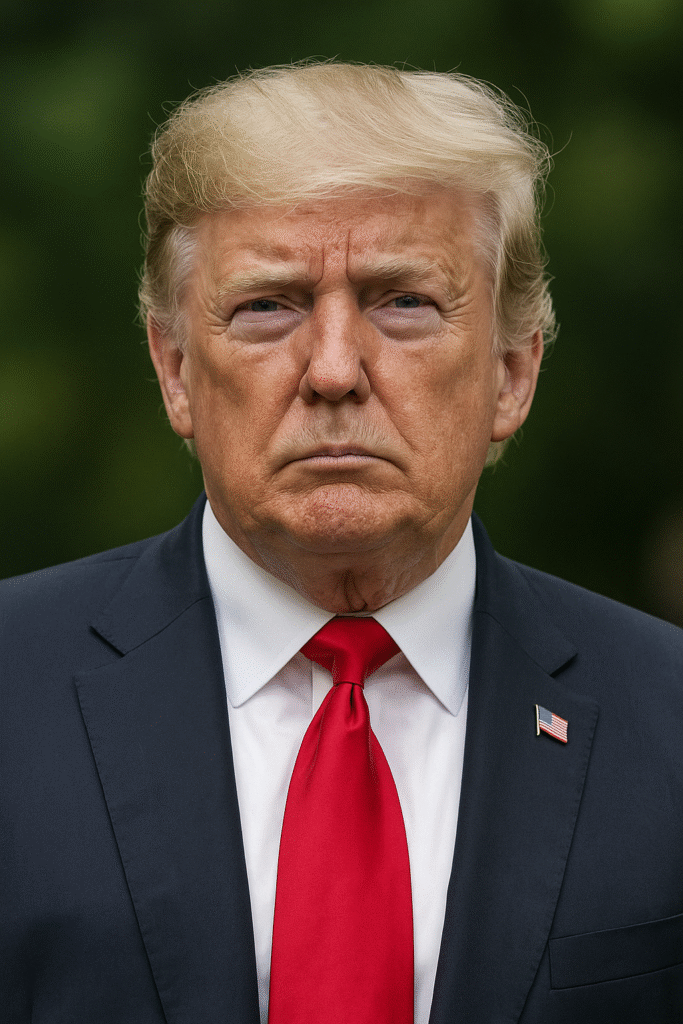President Donald Trump has expressed skepticism about imposing new sanctions on Russia, defying calls from G7 allies and members of Congress to increase pressure on Moscow over its ongoing war in Ukraine.
Speaking alongside UK Prime Minister Sir Keir Starmer at the G7 summit in Canada, Trump questioned the financial and strategic effectiveness of additional sanctions, warning they would impose significant costs on the United States.
“Sanctions cost us a lot of money,” Trump said. “They’re not a one-way street.”
His remarks come as other G7 nations prepare to unveil new punitive measures against Russia, highlighting a growing divide within the Western alliance on how to respond to the war in Ukraine.
Frustration Over Ukraine Peace Process
Trump has grown increasingly frustrated with his inability to broker a peace deal between Russia and Ukraine, a central promise of his 2024 campaign. Despite international pressure and domestic calls for stronger action—including from Republican Senator Lindsey Graham—Trump has so far refrained from significantly tightening measures against Vladimir Putin’s government.
Earlier, Trump criticized the G7’s 2014 decision to exclude Russia following its annexation of Crimea, suggesting that had Moscow remained a member, the war in Ukraine may never have happened.
“That was a big mistake,” Trump said. “You wouldn’t have that war. Putin speaks to me—he doesn’t speak to anybody else. He was insulted when he got thrown out of the G8.”
Trump reiterated his desire to see the G7 return to a G8 format, reintegrating Russia. He also floated the idea of including China, calling it “not a bad idea” to expand the group’s membership.
Zelenskyy Visit and Summit Dynamics
Ukrainian President Volodymyr Zelenskyy is scheduled to attend a special session at the summit on June 18, where he is expected to press for more support against Russian aggression. A bilateral meeting between Trump and Zelenskyy is also planned.
British Prime Minister Starmer, hosting multiple informal gatherings with fellow leaders—including French President Emmanuel Macron, Italian Prime Minister Giorgia Meloni, and German Chancellor Friedrich Merz—stressed the importance of coordinated leadership on global security issues. Aides described the impromptu meetings as “spontaneous,” though analysts say they were likely efforts to unify strategy on managing Trump’s unpredictable diplomacy.
Despite Starmer’s claim of G7 consensus for “de-escalation” in the Israel-Iran conflict, sources confirmed that no joint statement was reached on that front.
Trade Talks and Diplomatic Tensions
While security dominated the summit’s agenda, Trump used the gathering to advance trade negotiations:
- He signed an executive order implementing the US-UK trade agreement, reducing tariffs on UK car exports and aerospace components—a win for Starmer.
- Talks over Canadian steel and other trade disputes continue, with Trump and Canadian Prime Minister Mark Carney agreeing to finalize negotiations within 30 days.
- In a separate meeting, European Commission President Ursula von der Leyen said both sides instructed their teams to “accelerate” trade discussions. Trump has threatened to impose 50% tariffs on the EU if a deal is not reached by July 9.
Managing Trump Becomes a Subtext of G7
Behind the scenes, managing Trump’s approach to international diplomacy and alliances was a recurring theme among G7 leaders. His shifting stance on sanctions, threats of steep tariffs, and even his joking remark about making Canada the 51st U.S. state have raised concern among allies.
Carney, hosting the summit in Kananaskis, responded firmly to the remark, reaffirming Canada’s sovereignty and role in the Commonwealth.
As the summit unfolds, the challenge for G7 leaders remains how to maintain a united front on Russia, trade, and broader global security amid divergent approaches—particularly from the U.S. president.
